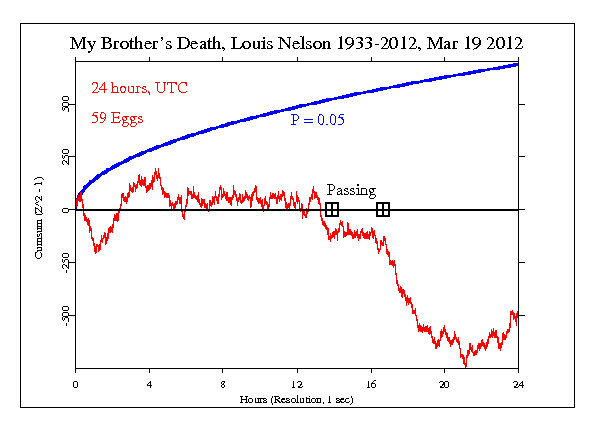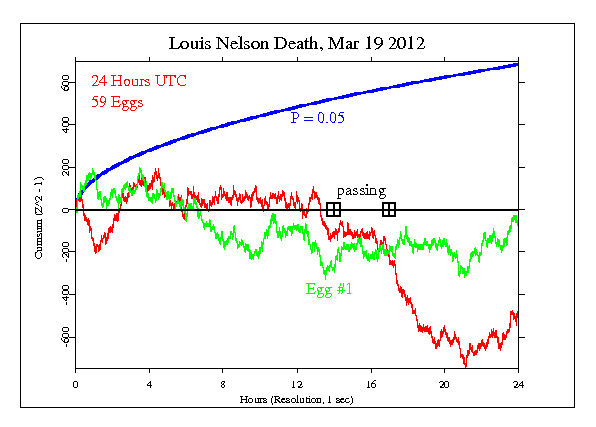|
My oldest brother, Louis, died in March not long before his 79th
birthday. He had gotten more fragile over the last year,
so we knew he was on the way. He was physically handicapped from birth,
and while mobile for much of his life, he lost ever more of his muscular
control, and for the last 20 years was either in a wheelchair or in bed.
So his long life was something of a miracle, engendered I think because
he was surrounded by love. I quote from his obituary to give some
feeling for this fact of his life:
Louis M. Nelson, age 78, of North Platte, passed away March 19, 2012 at
Centennial Park Retirement Village. He was beloved by his immediate
family and his extended family, and by his large circle of friends.
Louis was born May 26, 1933 in Berwyn, NE, to Ernest and Lillian Nelson.
Survivors include his brothers, Keith and his wife Gale, Roger and his
wife Reinhilde, and Larry and his wife Debby. Louis was a remarkable
person, born with a physical handicap but blessed with a sparkling
personality. He made others feel good, often by “giving them a hard
time,” his way of making sure you knew he was your friend. He loved
joking and banter, and was a delightful presence in the Nursing wing at
Centennial. He was surrounded there by a wonderful staff who became his
family. We will miss him greatly, but remember his influence – he made
each of us a better person by his example of living a courageous, full
life even in the face of great adversity.
Here is the graph of the full network on the day Louis died. I will
later add one that shows just the result for the Egg I host at home.

To explore the question whether my personal Egg #1 might be more
responsive or sensitive to my brother's death, the next graph includes
a data line from my Egg, printed in green and labeled Egg #1. Noting
again that single events aren't reliably interpretable, we can at least
say there is no persuasive evidence that the Egg was much affected.

It is important to keep in mind that we have only a tiny
statistical effect, so that it is always hard to distinguish
signal from noise. This means that every "success" might be
largely driven by chance, and every "null" might include a real
signal overwhelmed by noise. In the long run, a real effect can
be identified only by patiently accumulating replications of
similar analyses.
|